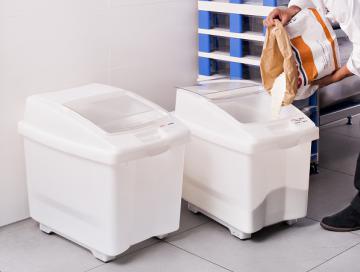
Storage and preservation of bulk dry foods
When buying and preserving bulk foods at your restaurant it is important to know the conditions of the storage place and the possible risks, in order to avoid them. The market offers practical solutions to help avoid contaminations, eliminating any risk of food intoxication or unnecessary food wastage.
To start off it is important to check that the storeroom environment is dry and well ventilated. Moisture is the number one enemy of dry foods such as pulses, nuts, pasta and rice. Correct storage will prevent moisture from coming into contact with supplies and causing spoilage. The ambient temperature should not exceed 25º, so it is important there are no pipes protruding, which could be undetected sources of heat.
In addition to the ambient conditions, it is important to consider other risks that could affect these foodstuffs: the presence of insects and rodents, physical types of contamination (presence of screws, pieces of metal), chemical hazards (presence of toxic product residues) from food and non-food products, such as cleaning and disinfecting products, that are stored together in the same location.
What can we do to avoid food contamination?
1. The storeroom must be equipped with shelving to deposit the different food supplies on them and avoid any direct contact with the floor. Shelving should be made from corrosion-resistant, non-porous material that is easy to clean, such as plastic or galvanised steel. The shelves should be flat and with perforations to guarantee the free flow of air.
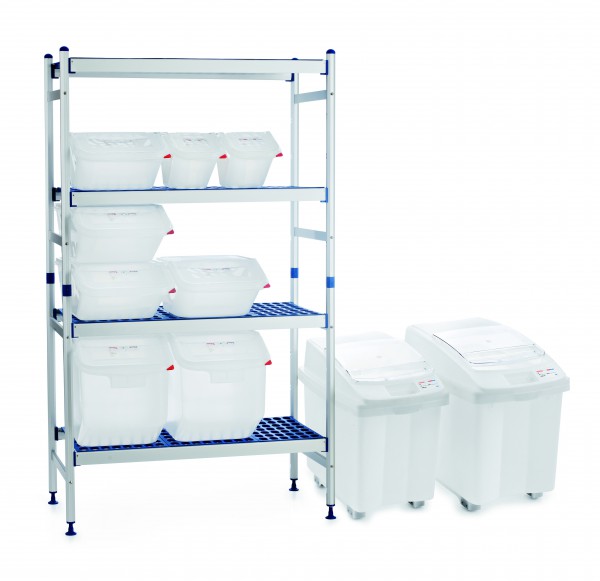
2. Food may become contaminated if the original container is broken. For this reason, supplies should be taken out their packaging and placed in special containers to prevent unwanted waste. These containers should be made of easily washable materials such as plastic and have a cover or lid.
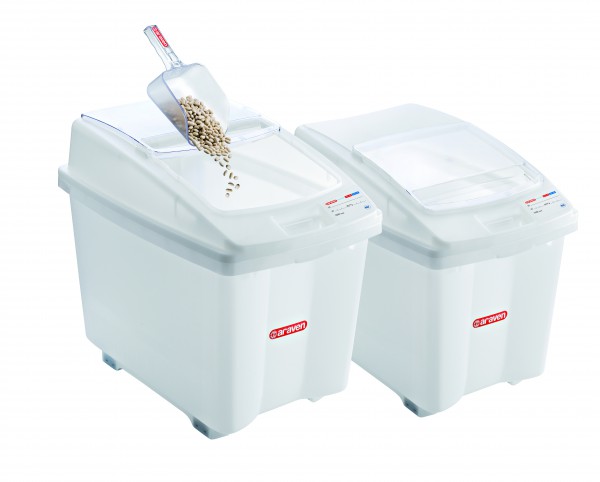
3. Food supplies should be organised according to the rule of First In, First Out (FIFO). This way food will not spoil because it is beyond its expiry date. Ingredient bins with a lid for filling and another for removing supplies, marked with a traceability label to indicate entry and expiry dates are extremely useful in storerooms.
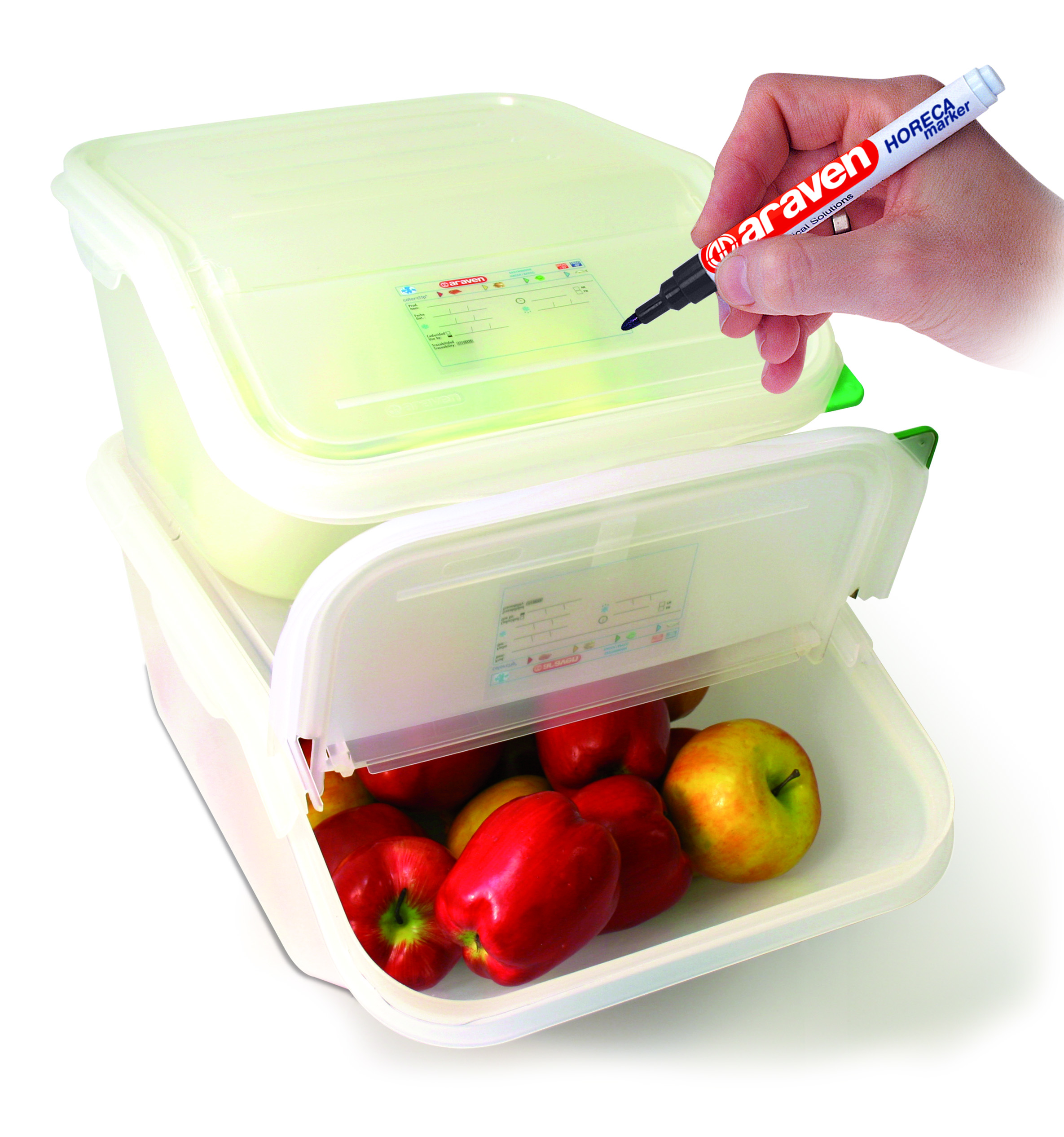
Following these tips and increasing provisioning frequency if your storeroom facilities are limited will ensure better preservation of bulk supplies and prevent food risks and unwanted wastage. If you have any queries or would like to share any other recommendations, please feel free to contact us.
It may interest you
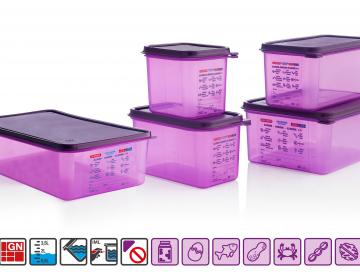
Allergen management
As a result of the entry into force of the EU 1169/2011 Regulation, this article is going to look at the most relevant aspects in the control of allergens or foods that may cause food intolerance
Read more
Food management in the professional kitchen
In professional kitchens receiving and keeping raw supplies in optimal conditions is a fundamental part of food management.
Read more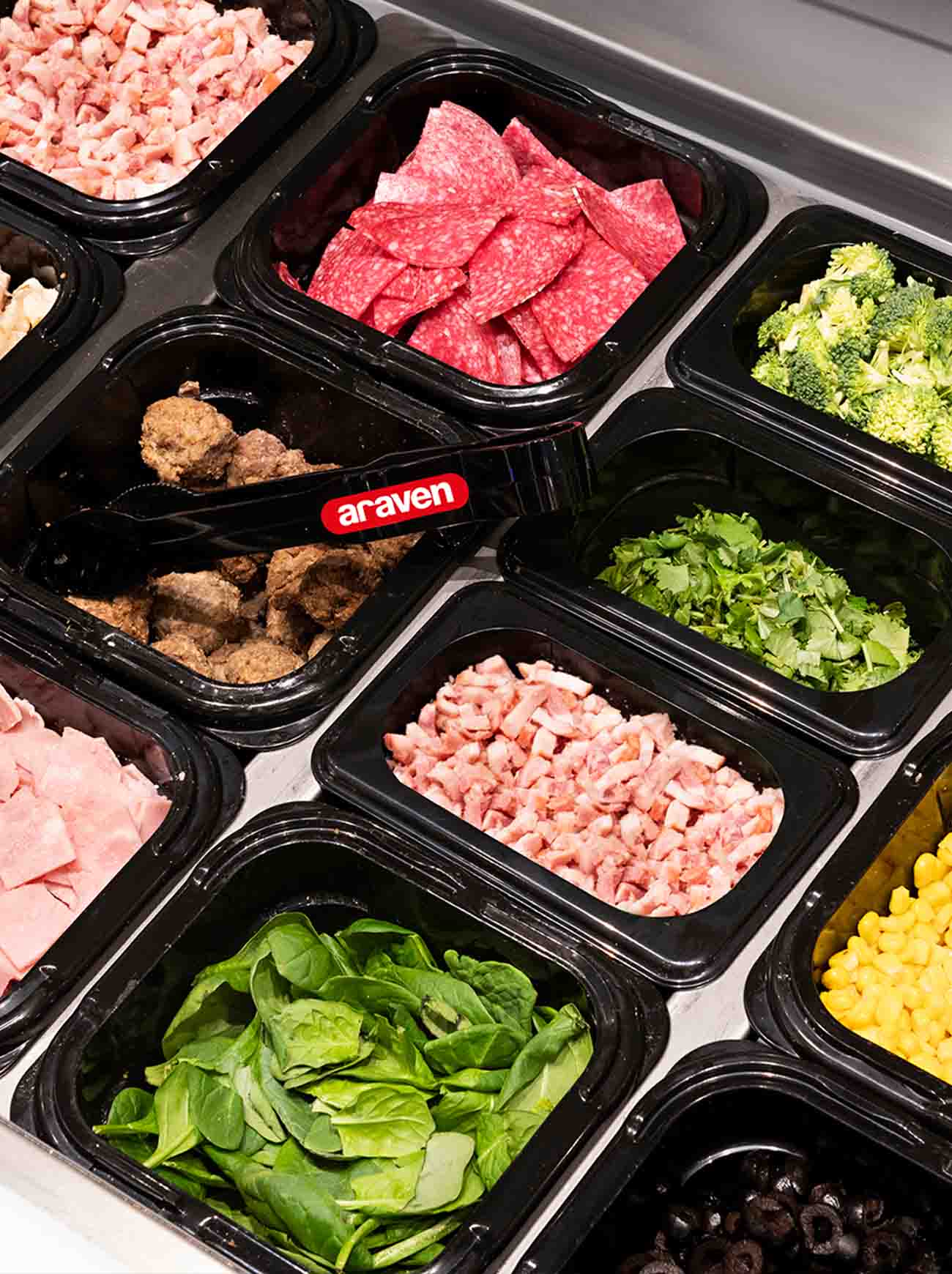
Food safety
Food safety does not only depend on the state of the food and the type of process that it is subjected to. The materials that food comes into contact with are also very important. Araven products comply and help to comply with all the required regulations regarding food hygiene. We can guarantee food safety in … Continued
Read more